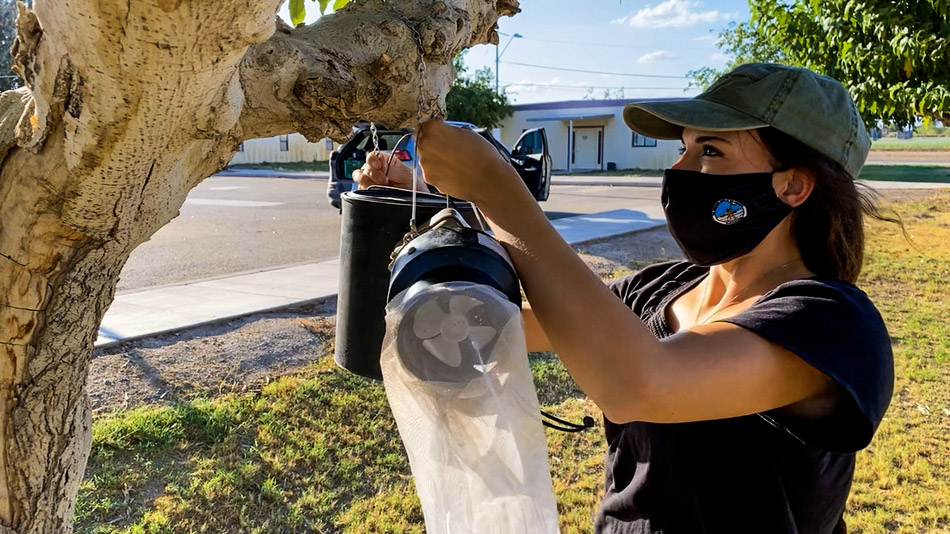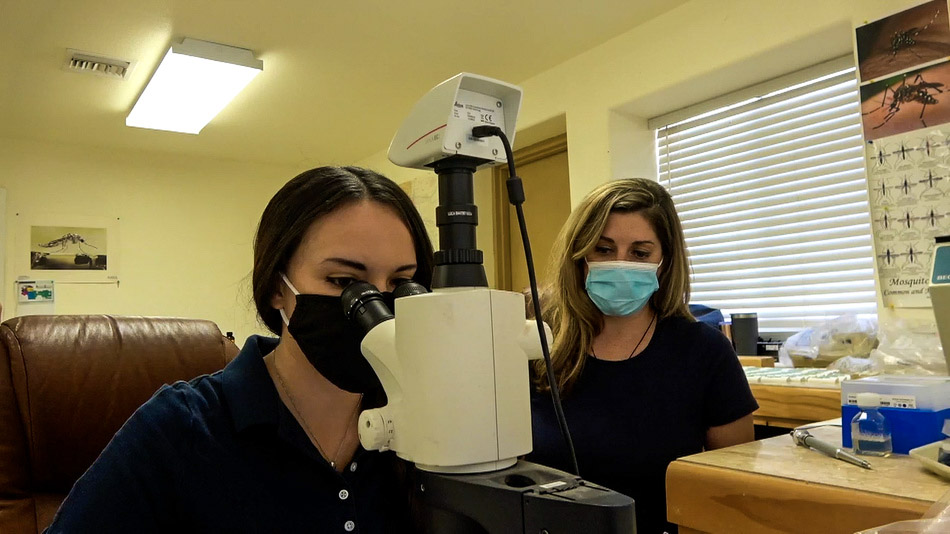Indianz.Com > News > Cronkite News: Cocopah Tribe keeps close eye on West Nile virus
West Nile mitigation keeps Yuma County, Cocopah reservation free of virus
Tuesday, October 26, 2021
Cronkite News
With Arizona’s healthy monsoon and an explosion of mosquito-borne West Nile virus cases, Yuma County has partnered with the Cocopah Indian Tribe south of Yuma to create an effective shield against the disease.
For the first time, Yuma County’s Pest Abatement District provided training and supplies to the reservation for mosquito surveillance and mitigation. That allowed the tribe the flexibility to react to rising cases in real time and use a variety of methods to prevent infections.
Their timing turned out to be fortunate. So far, the county has had zero cases in a year when parts of the state are seeing record infections, thanks to ample summer storms. Maricopa County alone has reported 182 cases as of mid-October, compared with just a few last year. Deaths statewide so far have reached 24, according to the Arizona Department of Health Services.
“We test every two weeks. Take mosquito samples throughout the county and populated areas along the river, and we test those,” said Richard Cuming, environmental vector control specialist at Yuma County. “Here, we try to keep the mosquitos out of the populated areas and in those rural areas where a lot of people really don’t go.”
Note: This story originally appeared on Cronkite News. It is published via a Creative Commons license. Cronkite News is produced by the Walter Cronkite School of Journalism and Mass Communication at Arizona State University.
Search
Filed Under
Tags
More Headlines
Native America Calling: Traditional love stories
Native America Calling: Honoring artists who demonstrate community spirit
‘We stand firm. We hold our ground’: Federal freeze impacts tribal gathering in nation’s capital
AUDIO: The 2025 State of Indian Nations in Washington, D.C.
RECAP: National Congress of American Indians hosts State of Indian Nations
Native America Calling: The State of Indian Nations in 2025
Ernie Stevens: Protecting tribal sovereignty in a new political era
Rhonda LeValdo and Gaylene Crouser: Not In Our Honor
AUDIO: Legislative Hearing on H.R.410, H.R.412, H.R.504 & H.R. 741
Native America Calling: Native in the Spotlight with Tatanka Means
VIDEO: ‘Thank you for your leadership’: Sen. Lisa Murkowski (R-Alaska) to Sen. Brian Schatz (D-Hawaii)
VIDEO: Senate Committee on Indian Affairs Organizational Business Meeting
Alaska Beacon: Trump administration faces lawsuit over tribal gaming facility
Native America Calling: Medicaid’s next chapter in Indian Country
H.R.43, the Alaska Native Village Municipal Lands Restoration Act
More Headlines
Native America Calling: Honoring artists who demonstrate community spirit
‘We stand firm. We hold our ground’: Federal freeze impacts tribal gathering in nation’s capital
AUDIO: The 2025 State of Indian Nations in Washington, D.C.
RECAP: National Congress of American Indians hosts State of Indian Nations
Native America Calling: The State of Indian Nations in 2025
Ernie Stevens: Protecting tribal sovereignty in a new political era
Rhonda LeValdo and Gaylene Crouser: Not In Our Honor
AUDIO: Legislative Hearing on H.R.410, H.R.412, H.R.504 & H.R. 741
Native America Calling: Native in the Spotlight with Tatanka Means
VIDEO: ‘Thank you for your leadership’: Sen. Lisa Murkowski (R-Alaska) to Sen. Brian Schatz (D-Hawaii)
VIDEO: Senate Committee on Indian Affairs Organizational Business Meeting
Alaska Beacon: Trump administration faces lawsuit over tribal gaming facility
Native America Calling: Medicaid’s next chapter in Indian Country
H.R.43, the Alaska Native Village Municipal Lands Restoration Act
More Headlines

